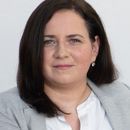
© Ilja - stock.adobe.com
Biomass, Biogas and Biofuels
Biomass: Fuelling the Future!
Unlock the potential of biomass energy in "Biomass, Biofuels & Biogas". Delve into advanced technologies for converting solid biomass, liquid biofuels, and biomass-based gases. Discover the intricacies of plant operation, maintenance, economic evaluation, and risk factors for biogas, biodiesel, bioethanol, and SNG production. Learn about plant engineering for these energy sources and explore the ecological impacts, including energy balances, life cycle assessment, and the relevance of land-use changes. Step into a sustainable energy future!
Download the brochure:
What you'll learn
✓ Comprehensive Insight: Deepen your knowledge of bioenergy essentials, covering physics, chemistry, and industry dynamics for a thorough comprehension.
✓ Application-Oriented: Aquire specialized knowledge and experience it in day-to-day industry applications.
✓ Technology Competence: Develop critical skills in evaluating and implementing bioenergy technologies, considering economic, technical, and ecological factors.
✓ Networking: Build connections with experienced professionals and fellow students to expand your professional network.
✓ Flexible: Benefit from modular learning tailored to diverse professional backgrounds.
Didactics: Theoretical content, case studies, reflections and discussions, excursions
Language: Available in English
Venue: TU Wien & Bruck/Leitha
Participation Fee: The participation fee is EUR 6,320 (VAT-free, excl. travel and accommodation expenses)
Certificate: Certificate of participation from TU Wien and possibility of crediting to the MSc (CE) Renewable Energy Systems program. The workload of the program equals 15 ECTS.
Requirement for participation: Please register via our online form. A short individual consultation with the program manager is also a necessity for participation.
- To master bioenergy fundamentals across physics, chemistry, and industry dynamics.
- To develop critical skills in evaluating and implementing renewable energy technologies.
- To assess the operational, economic, and ecological implications of biomass-based conversion technologies.
- To explore various biomass utilization methods, including solid biomass, liquid biofuels, and biomass-based gases.
- To transition towards a sustainable energy future, understanding energy balances, life cycle assessment, and land-use significance
3 blocks, 9 days total, full-day sessions (classes from 9:00 to 17:00).
- December 1–6, 2025 – Monday to Saturday
- January 15, 2026 – Thursday
- February 12, 2026 – Thursday
This program is tailored for working professionals seeking to enhance their expertise in sustainable energy. We welcome individuals from diverse backgrounds, including engineering, environmental science, business, policy, and beyond. Whether you're a seasoned industry practitioner or a career changer, this flexible program equips you with the knowledge and skills to excel in the rapidly evolving field of renewable energy.
![[Translate to English:] Management Technology](/fileadmin/_processed_/4/a/csm_shutterstock_696275392_29fcf4b970.jpg)
![[Translate to English:] Management Essentials](/fileadmin/_processed_/9/1/csm_shutterstock_599921468_5f86e091c7.jpg)
Faculty
Our lecturers have a scientific background with many years of relevant training experience. They combine theoretical input with a strong focus on practical implementation.
Dr. Gerfried Jungmeier studied Mechanical Engineering at Graz University of Technology. He wrote his PhD on "Greenhouse gas balance of bio energy systems" in 1999. Since 1993 he has been employed as scientist at the Institute of Energy Research at Joanneum Research Forschungsgesellschaft mbH. Dr. Jungmeier is Chairperson of Cost Action E31 "Management of Recovered Wood". His research interests include life cycle assessment, bioenergy, emission and energy balances, and sustainable energy systems.
Dr. Jungmeier works currently in national and European founded projects on biofuels for transportation, hydrogen as future energy carrier, recovered wood as well as scenarios for future sustainable energy systems.
Since 1985 Prof. Friedl has been scientist at the TU Wien and is head in the research area "Thermal Process Engineering and Simulation". The main targets are fundamental and applied research in the field of “Sustainable Process Engineering”.
International research activities have been performed in the period of 1989 to 1990 at the Massey University, Department of Biotechnology in Palmerston North, New Zealand and 1991 at the University of California, Department of Chemical Engineering, Berkeley, California, USA.
From 1996 to 1999 he was project manager for power stations and industrial boilers at "Austrian Energy and Environment-SGP/Waagner Biro Ges.m.b.H.".
Dr. Werner Friedl is working for AIT Austrian Institute of Technology (since 2015) where he is heading and coordinating the research field "Integrated Energy Systems". In parallel he is member of the Board of Directors of EUREC (T he Association of European Renewable Energy Research Centres) and Operating Agent of ISGAN (The International Smart Grid Action Network). Furthermore, he is lecturer at Universities and give courses in Smart Grids/Internet of Energy, Energy Markets and Energy Law. After studies in Electrical Engineering with the focus on Energy Technologies, he worked at the Institute of Electrical Power Systems (TU Graz) in the fields of grid planning, safety and protection, decentralised generation and power quality and did his doctorate in grid planning and grid development. He achieved his expertise in energy policy and electricity market design during his time at Energie Control Austria (from 2008 2015). His work at the Austrian regulatory authority included innovation, smart grids, quality of supply, balancing energy and energy control. From 2011 2015 he headed the working group "Electricity Quality of Supply and Smart Grids" at the Council of European Energy Regulators (CEER) and coordinated Smart Grids activities with in CEER.
Dr. Michael Harasek is assistant professor at the TU Wien, he received his PhD in chemical engineering from the same university. As head of the research group “Thermal Process Engineering - Computational Fluid Dynamics” he guides a team of fourteen PhD students and post-docs at the Institute of Chemical Engineering.
For more than twenty years, he has been working on the design of new processes and technologies in the process industries and related fields. A major part of his research work is dedicated to the development of environmentally friendly technologies focussing on membrane processes and the integration of renewable energy pathways, e.g. the production of biofuels, and the production and upgrading of biogas.
With his group, he is partner in numerous national and international research projects, currently he also coordinates a FP7-SME project. Michael Harasek works also on the application of experimental and computational fluid dynamics in many fields of chemical engineering for process analysis and optimization. He is author or co-author of more than 50 publications and 7 patents.
Martin Mittelbach from the Institute of Chemistry has been engaged in biodiesel activities since 1980, under his guidance the first pilot plant worldwide for the production of rape seed oil methyl esters was put into operation in 1985. He was the leading scientific person for the development of biodiesel in Austria. Within the working group “Renewable Resources” over 70 scientific publications and several book contributions have been published, M.Mittelbach is also publisher of the first comprehensive handbook for biodiesel. The most important research topics on biodiesel are the development of process technology for biodiesel production as well as development of analytical methods for the characterization of biodiesel.
Numerous national and international research projects on biofuels have been carried out during the last 20 years. Within these projects cooperation with a lot of institutions with engagement on biodiesel was carried out.
M. Mittelbach is member of national and European specification committees for biodiesel and also member of the Steering Committee of the Biofuels Technology Platform of the European Commission.
The above faculty represent a selection of our lecturers.
The First Step Toward Your Master’s Degree
This compact program is part of the MSc Renewable Energy Systems and can be credited toward the master’s program at a later stage.

